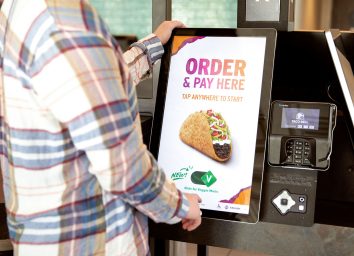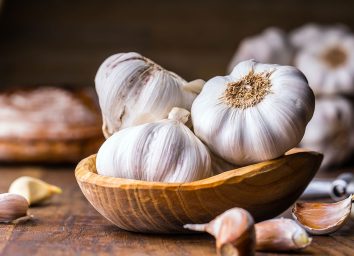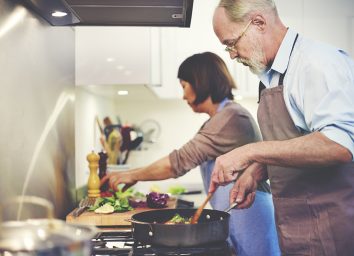7 Eating Mistakes That Expose You to Coronavirus
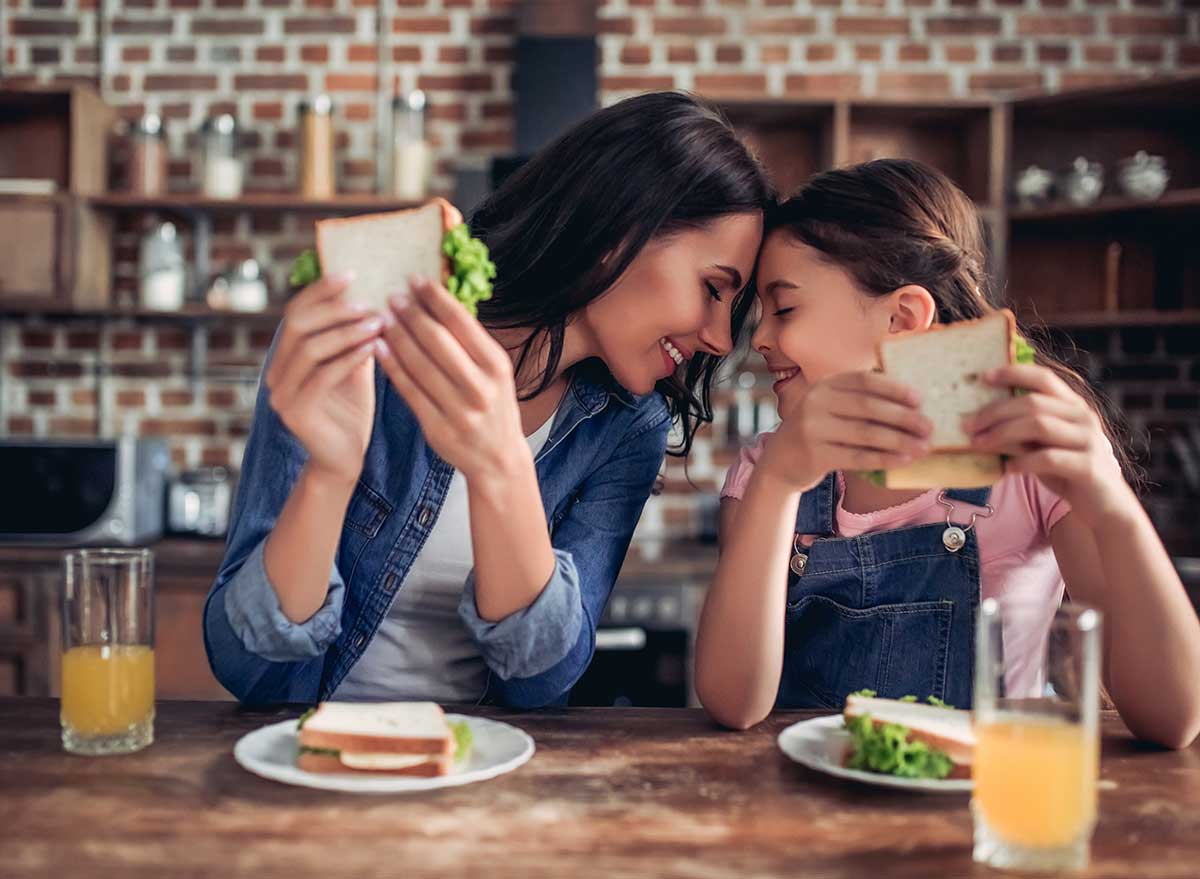
The COVID-19 pandemic has caused all of us to rethink how we go about our normal day, from taking a walk outside to how we socialize. Another thing we've had to get creative with is how we buy, cook, and eat food in safe ways.
You may be keeping your distance from people at grocery stores and those who work for food delivery services, but that's only one part of reducing your chances of contracting COVID-19. There are several other mindless mistakes you're likely making on a regular basis that could potentially be putting you at a higher risk of exposure.
Avoid making these food mistakes to stay healthy during, and after, the pandemic. And, to keep yourself informed, sign up for our newsletter to get the latest coronavirus foods news delivered straight to you.
You're touching your face while grocery shopping.
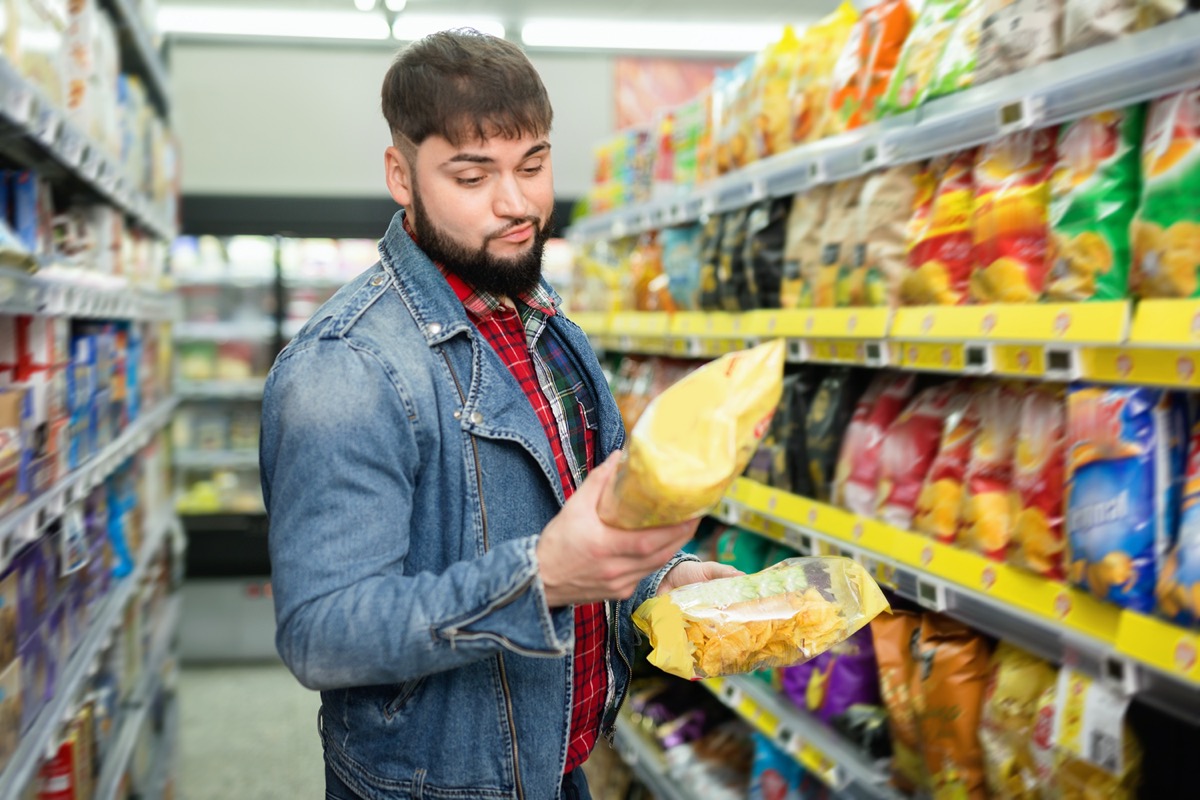
When you're at the grocery store, the absolute last thing you want to do is touch your face or your phone. Since it's still unclear whether the virus is transmissible through objects, it's best to play it safe and act as though it does in order to minimize any chances of exposure. We do know that the virus can survive on plastic surfaces for up to three days, so again, it's not totally out of line to think that it could still be infectious. And remember, wearing gloves doesn't protect you from the virus if you then go touch your face or phone after having touched groceries and the shopping cart handle.
You're not cleaning and sanitizing your kitchen counter correctly.
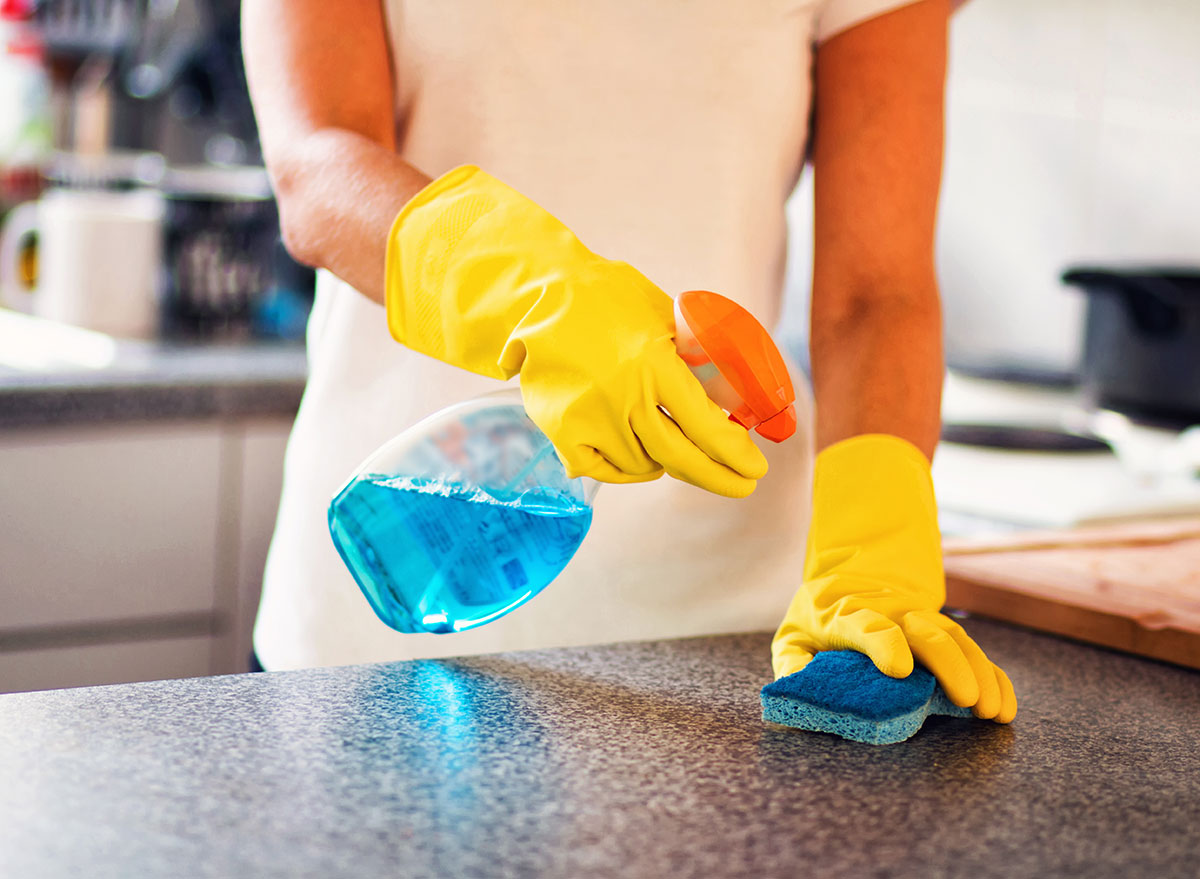
It's possible that you're not properly disinfecting your kitchen countertops, which could invite bacteria and traces of the virus into your food or even directly onto your hands. Again, it's not yet clear whether or not we can contract COVID-19 from surfaces, objects, or food, however, it's still important to both clean and sanitize your countertops for food safety reasons in general.
In an interview with Eat This, Not That!, Shelly Fiest, executive director of the non-profit Partnership for Food Safety Education, explains the differences between cleaning off a countertop with soap and actually taking measures to disinfect it. "Cleaning and sanitizing are not the same thing. They are separate, important steps you can take to reduce the spread of harmful germs," said Feist.
"Cleaning removes germs, dirt, and impurities from surfaces by the use of soap or detergent and water. Sanitizing lowers the number of germs on surfaces by the use of a diluted bleach solution that is easy to make at home."
You're eating food without washing your hands first.
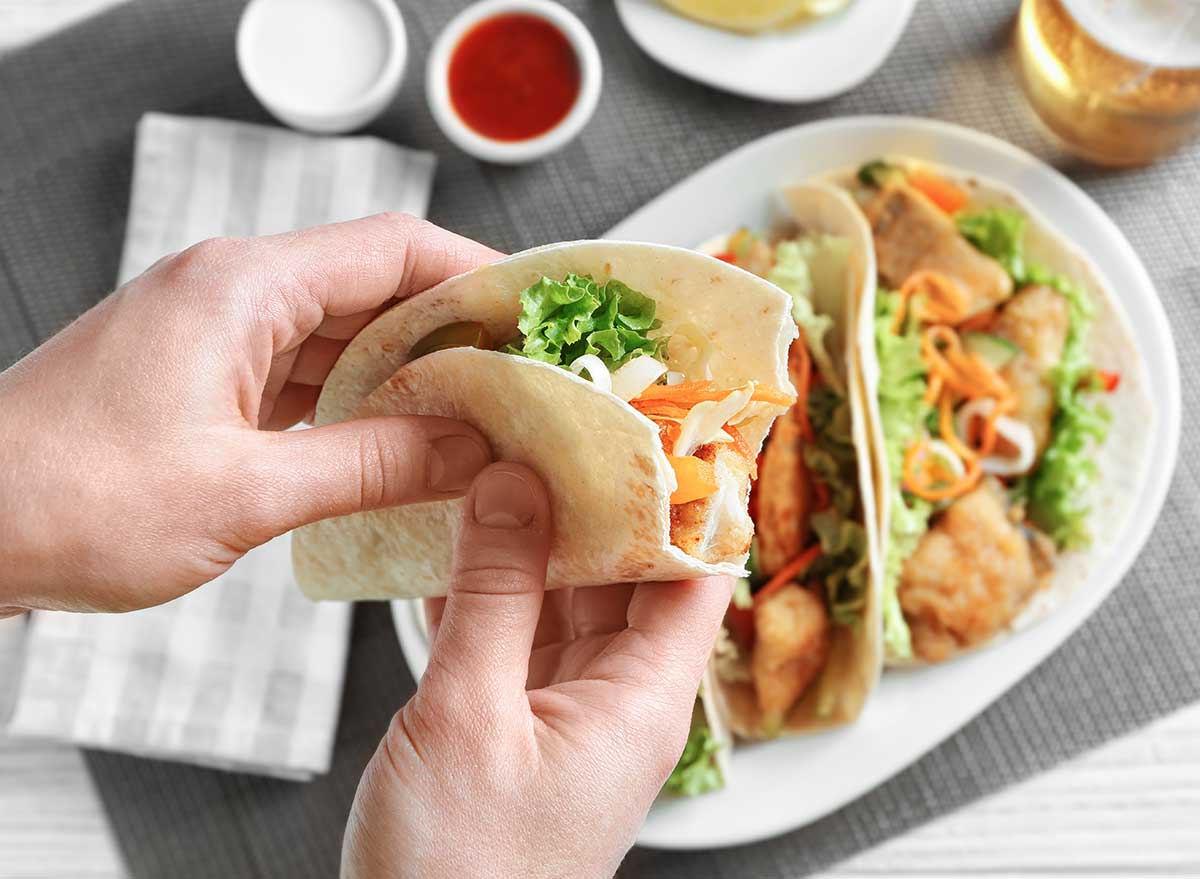
We get it, those tacos you ordered from your favorite local restaurant are just too good not to dive into the second they arrive at your door. However, we strongly urge you to wash your hands after touching the delivery bag and the box they were enclosed in. Why? Extra precautions should be taken without any hesitation during this time.
You're sharing food with the people you're in quarantine with.
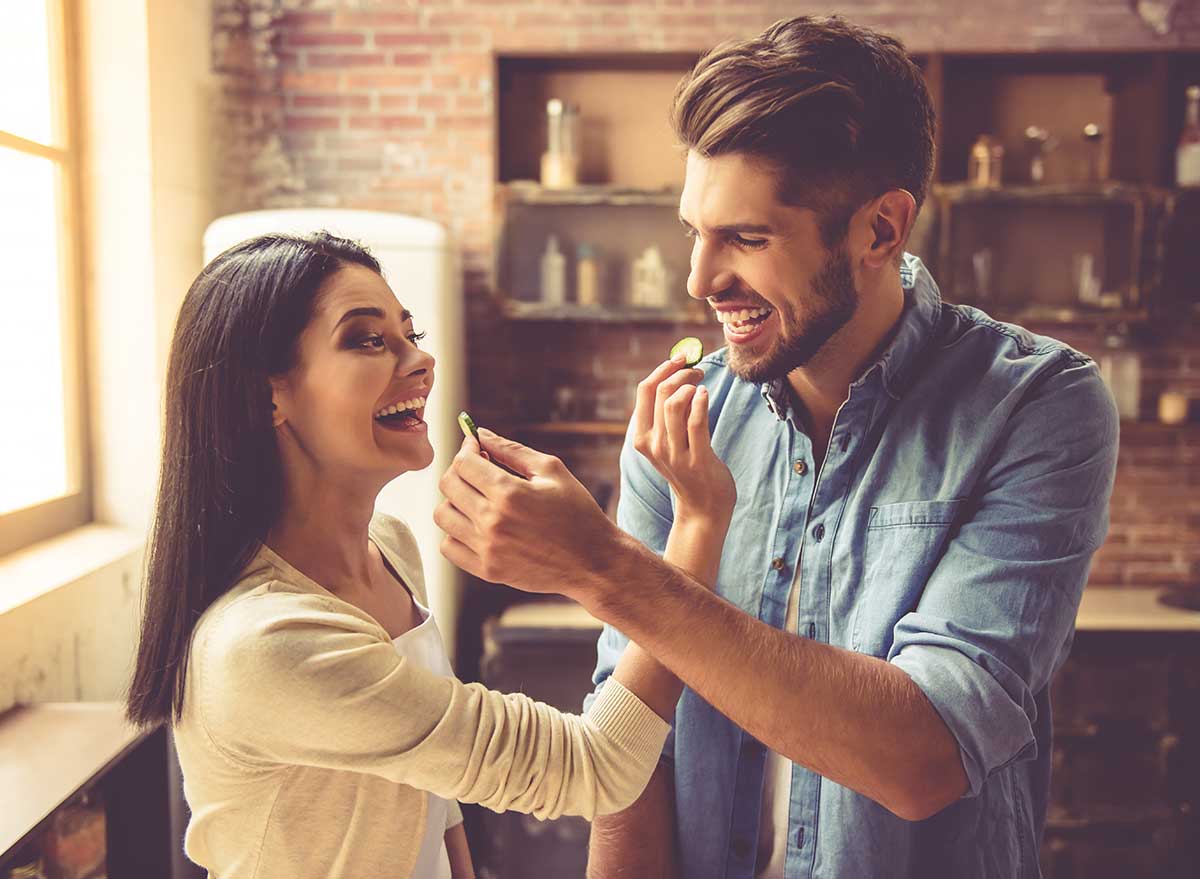
As much as you may want to devour the rest of your roommate's homemade molten chocolate cake that they left on their plate, it's best to resist temptations. The virus is transmitted through respiratory droplets and eating something that another person's fork had repeatedly poked around in could likely be passed to you. Even if they aren't exhibiting symptoms, they could be asymptomatic and a carrier, and who knows how it could affect you.
You're not wearing a mask to pick up your takeout order.
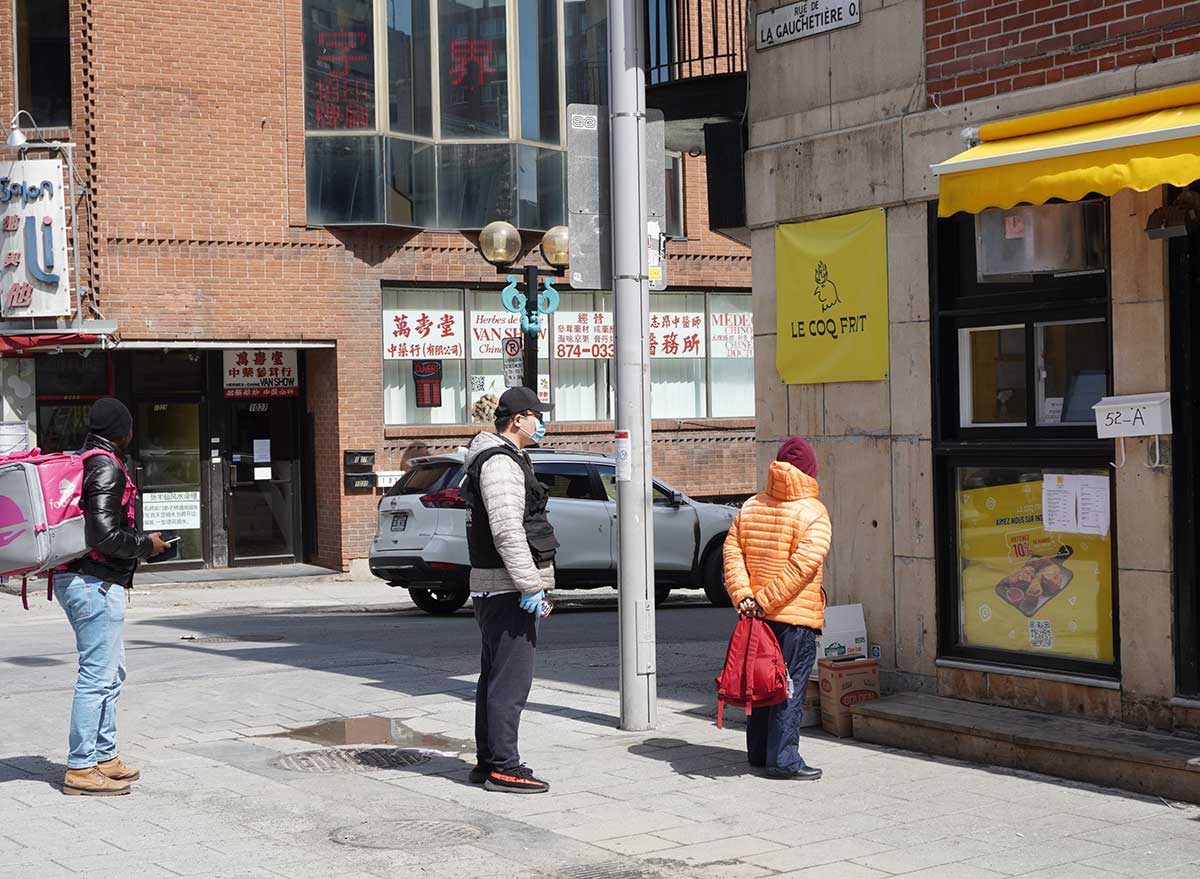
This mistake is perhaps the most important one of them all to fix because not only could you be risking yourself of exposure but you could also be endangering the person who is behind the counter, as well as those who are in line. Make sure to wear your mask when you go to pick up food for takeaway or even to order something at the window.
You're eating heavily processed foods—often.
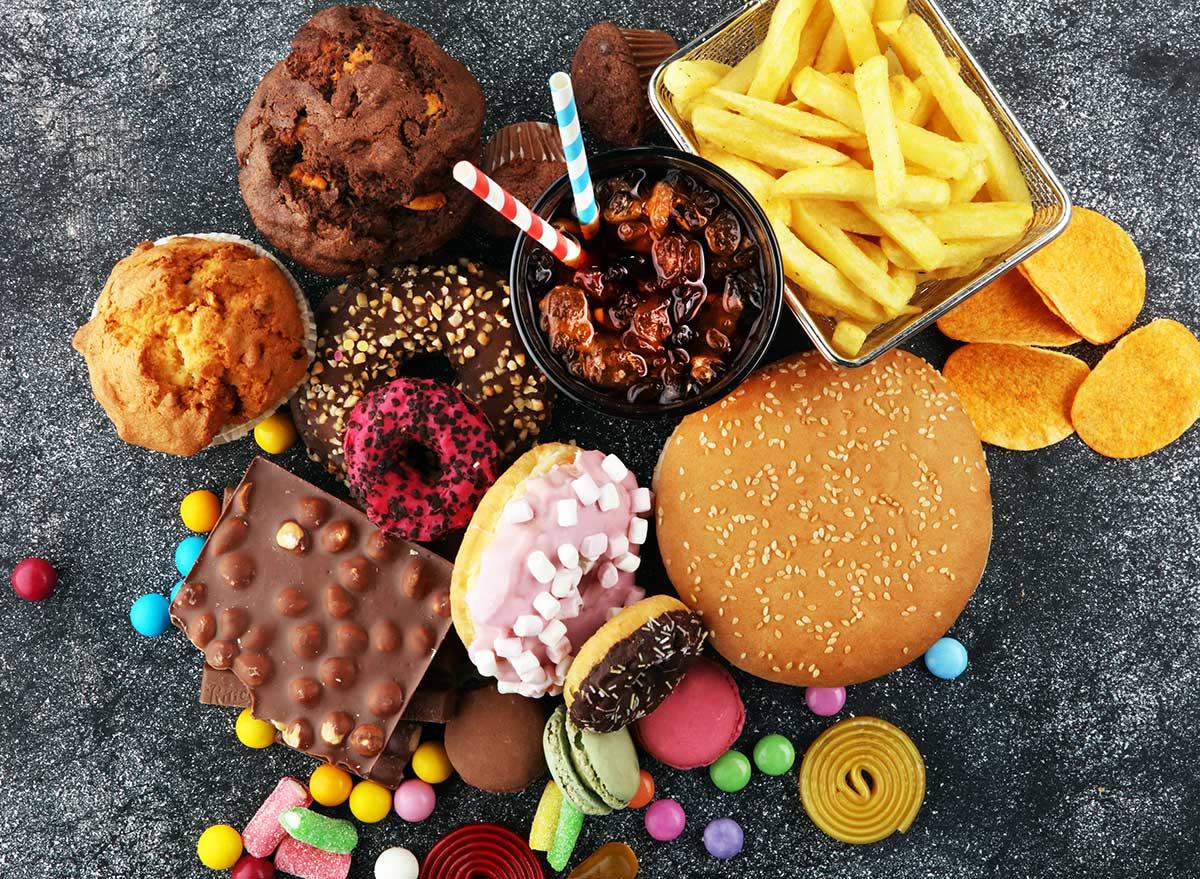
This is not a direct link to COVID-19 by any means, however, eating heavily processed foods regularly can suppress your immune system by causing what's called an inflammatory response. In another Eat This, Not That! article, Syndey Greene, MS, RD explained just how junk food can hinder your immunity.
"Processed foods, with their high sugar levels, omega-6 fatty acids, excess sodium, and junky additives, on the other hand, can stoke the fire of inflammation," says Greene. "When inflammation is high, it taxes the immune system leaving us more susceptible to disease and illness."
You're dropping off food to a friend and sticking around to chat.
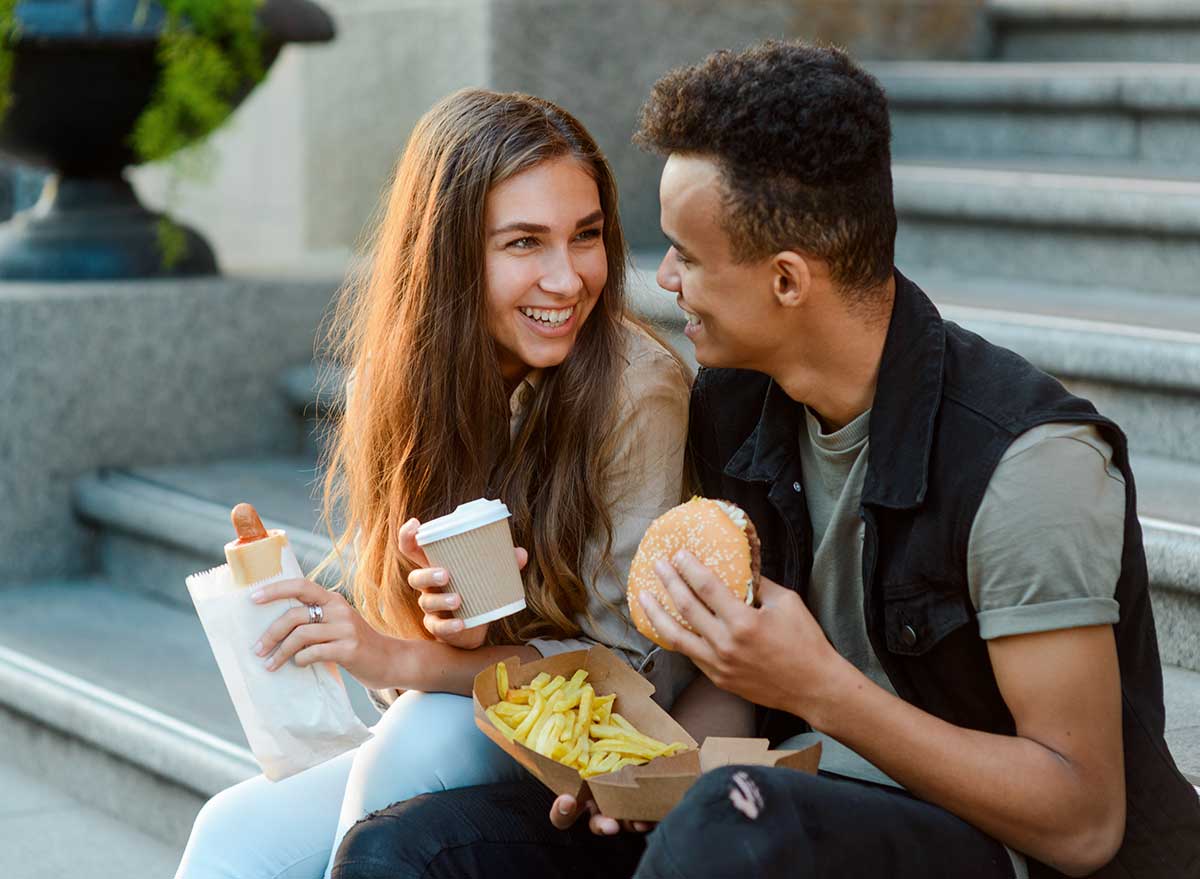
There are a few ways you can safely deliver food to your friends during the pandemic, but dropping food off and then staying for a while to chat with your friend is not one of them. Be sure to drop off your home-cooked meal or takeout order on their doorstep and retreat back to your car, bike, or just walk down the street before they open the door. Current research is suggesting that the coronavirus may be transmissible through aerosols in the air, so the farther you stand away from someone, the better.
For more helpful info, make sure to avoid these foods that weaken your immune system.
